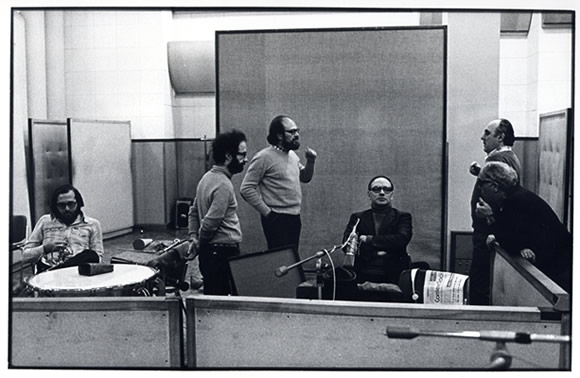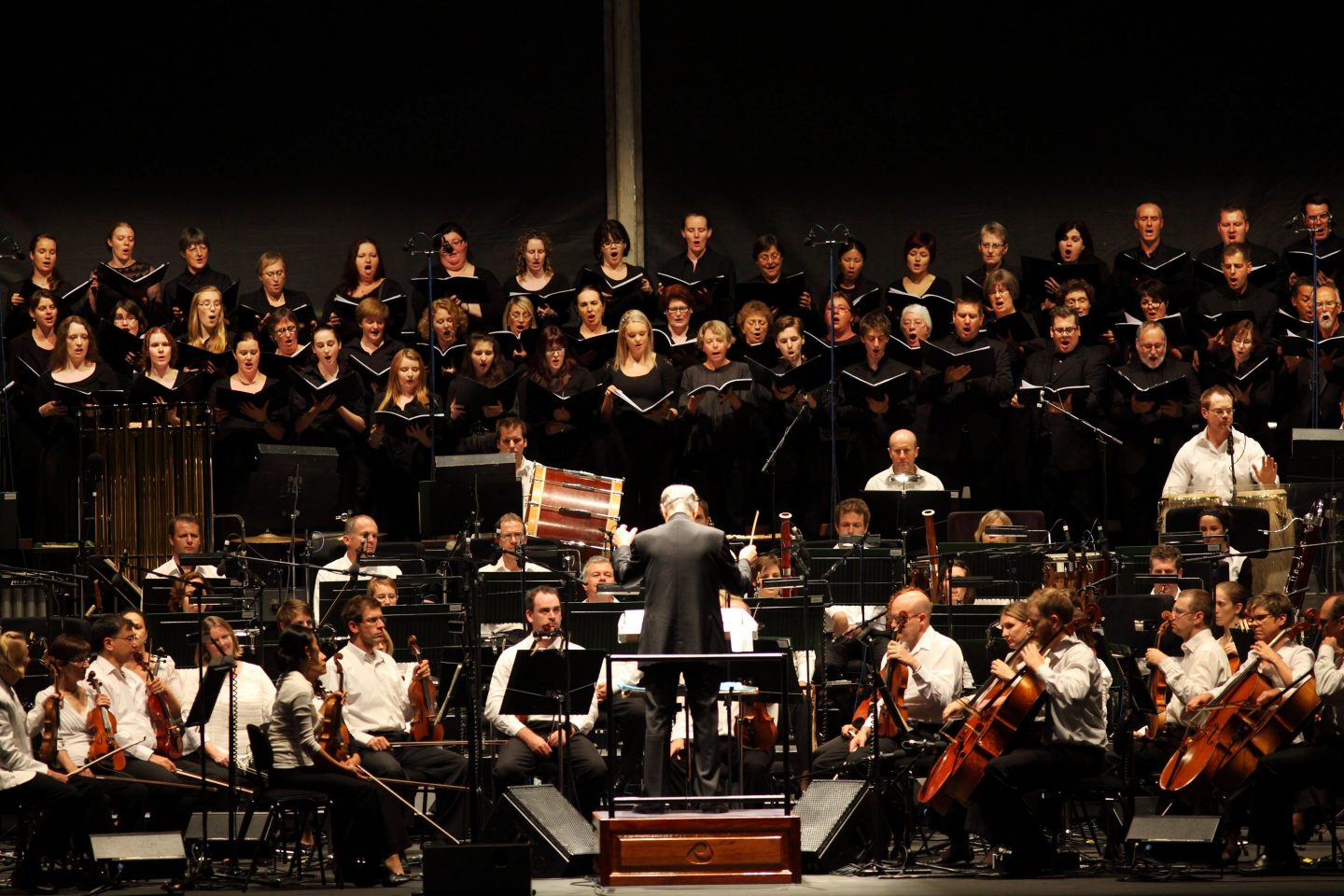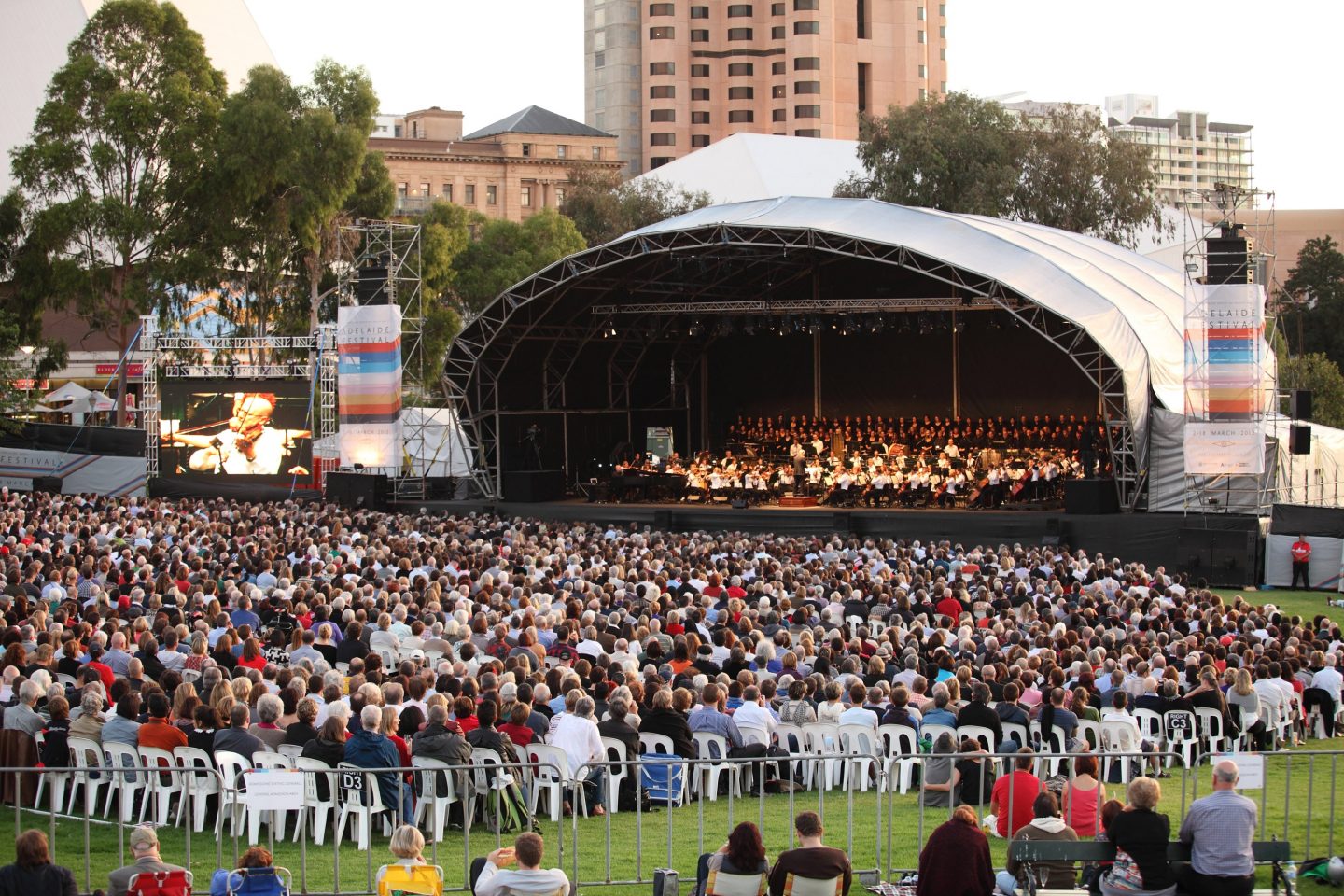“He’s one of my all-time musical heroes,” Grabowsky tells The Adelaide Review over the phone from a newly locked down Melbourne. “I was a film composer myself for quite a long time, and he would have been one of my key inspirations. But it goes beyond a lot of film music – I just loved his music generally.
“I always loved him because he represented a very different path from what I would describe as the tradition of Hollywood film composition, which really had a history going back to the arrival in California of a lot of fabulous conservatorium-trained central European musicians. Many of whom were Jewish refugees, and they brought that whole European orchestral tradition with them.
“Whereas Morricone’s background was a little bit different; he really started as kind of a jazz musician. Very well-schooled – he studied composition with a leading Italian composer called Goffredo Petrassi – but then he went into this extraordinary group [Il Gruppo] that played free improvised music, and did several records in the late 1960s. When I say experimental, I mean really experimental. And you can hear that in his scores. His approach to sonics is very different from most, or all, of the American film composers.

Roberto Masotti / Wikimedia Commons
“If you listen to one of his most famous scores, The Good, The Bad and The Ugly, the way he uses voices almost as percussion instruments, and the way he integrates sound effects into the music as well really creates an atmosphere of violence and wildness, which is far in advance of any of the scores which accompanied any of the American westerns at the time. He was leading our ears into a whole different kind of concept of what these movies were about.”
Come 2011, Grabowsky found himself contemplating his second and final program as Adelaide Festival artistic director when the tantalising opportunity to lure his hero to South Australia presented itself.
“I went to see him perform in Verona – that would have been in 2011,” he recalls. “I’d noted that he had started to do concerts, which was a new thing for him, and I thought, ‘well, here’s my chance, I’ve got one more crack at this’. We’d organised for me to meet him, we’d got in touch with his people, and after the concert I met his brother who was his manager. We had dinner and talked about the Adelaide Festival, and what a great festival it was and how I wanted him to open it.
“I’d noted that he had started to do concerts, which was a new thing for him, and I thought, ‘well, here’s my chance, I’ve got one more crack at this’.”
Paul Grabowsky
“I could only really talk to him through the interpreting of his brother, because he didn’t speak English, but he was very charming, and very gracious – a man of incredible style and elegance. You know, something discreetly aristocratic about him in the way he conducted himself.
“That’s the great thing about the Adelaide Festival, that you can do things like that.”
While the coup of bringing this internationally-renowned star to Adelaide would have made for a memorable conclusion to Grabowskyi’s festival tenure in its own right, it was certain external factors that made headlines at the time – a now-notorious example of how Adelaide’s everything-at-once approach to ‘Mad March’ scheduling can go awry.
“You know people at the time made a lot about the unfortunate confluence of Clipsal and Morricone, but in hindsight it didn’t amount to very much,” Grabowsky reflects. “I have a lot of friends who were at that concert, and for them it was a slightly annoying background noise, but what I do remember about it was that as soon as the race started, pretty much immediately the Premier[Jay Weatherill] got on the phone, and it seemed to me that the race stopped not that long afterwards. It might have gone for 15-20 minutes, and it didn’t destroy the concert.”
 Morricone conducts the Adelaide Symphony Orchestra and Adelaide Chamber Singers in 2012
Morricone conducts the Adelaide Symphony Orchestra and Adelaide Chamber Singers in 2012
Ultimately it’s the music, rather than the revving of engines or the clatter of Festival Centre recycling, that has been front of Grabowsky’s mind following the news of Morricone’s death on Monday 6 July at the age of 91.
“The concert was amazing, the Adelaide Symphony Orchestra was brilliant, the soloists were wonderful, and people were over the moon. I’ve actually had a few emails today from people thanking me for bringing him out to Australia – so that’s my memory.
“He reckoned he didn’t even notice the motor cars,” Grabowsky recalls of Morricone’s reaction to the kerfuffle. “Whether he was just being polite or not I don’t know… he gave a beautiful Q&A the following day, and I think he had a great time.”
“l always remember him as being the perfect gentleman; considering his fame, and the extraordinary achievement of one of the most amazing careers in 20th century music, and into the 21st century, he seemed to be a person who wore that with humility and grace.”

Walter is a writer and editor living on Kaurna Country.
Get the latest from The Adelaide Review in your inbox
Get the latest from The Adelaide Review in your inbox